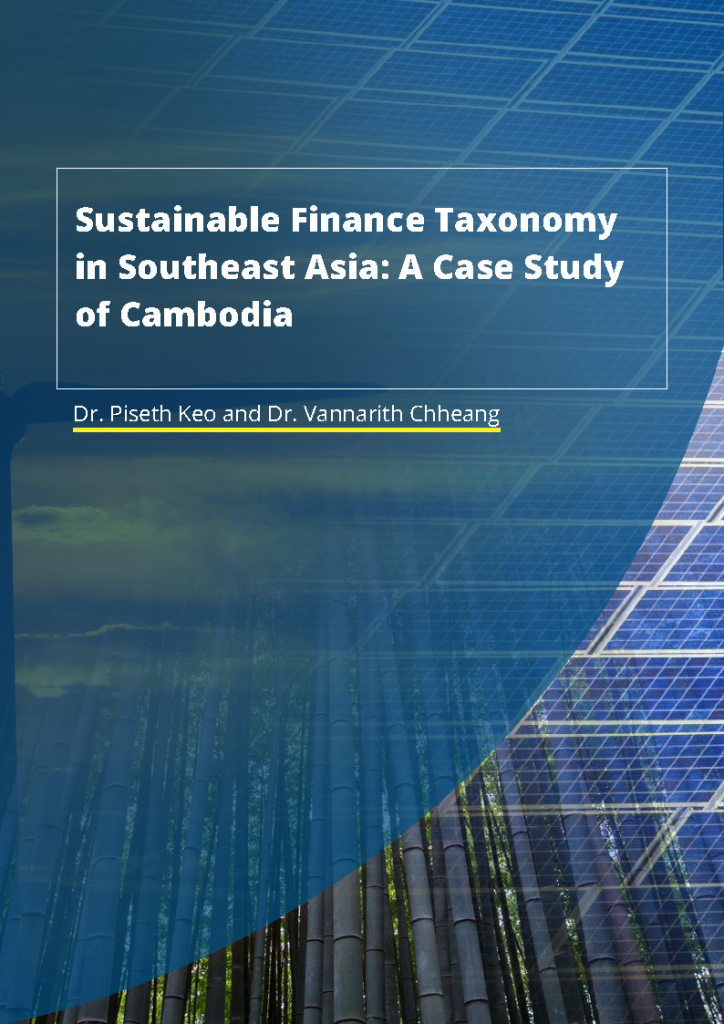- Home
- About
- Publications
- Multimedia
- Events
- AEC
- Consulting Services
- Contact Us
Dr Keo Piseth and Dr Chheang Vannarith co-authored a Book Chapter on “Sustainable Finance Taxonomy in Southeast Asia: A Case Study of Cambodia” in the “Geoeconomics of Decarbonisation in Asia‑Pacific Book” published by Konrad-Adenauer-Stiftung.
Abstract of the Chapter
Having been at the forefront of efforts to combat climate change and environmental degradation, in 2018, European Union (EU), introduced sustainable finance taxonomy, which is “a tool to help investors, companies, issuers and project promoters navigate the transition to a low-carbon, resilient and resource-efficient economy”. Taxonomy covers climate change mitigation, climate change adaptation, sustainable use and protection of water and marine resources, transition to a circular economy, pollution prevention and control, and protection and restoration of biodiversity and ecosystems. Implementation and regulation of the taxonomy in Europe will have broad implications on international trade, and politics. This paper seeks to discuss the progress and challenges in introducing sustainable taxonomy in Southeast Asia in general and in Cambodia in particular. The paper is divided into four main sections including (1) a conceptual framework on sustainable taxonomy, (2) EU’s experiences, (3) ASEAN’s experiences, and (4) a case study of Cambodia. The assumption is that ASEAN does not have systemic, integrated sustainable taxonomy yet. Each ASEAN Member State pursues its own SDGs financing strategy. Therefore, ASEAN, and Cambodia in particular need to develop its own regional standard on sustainable taxonomy.

